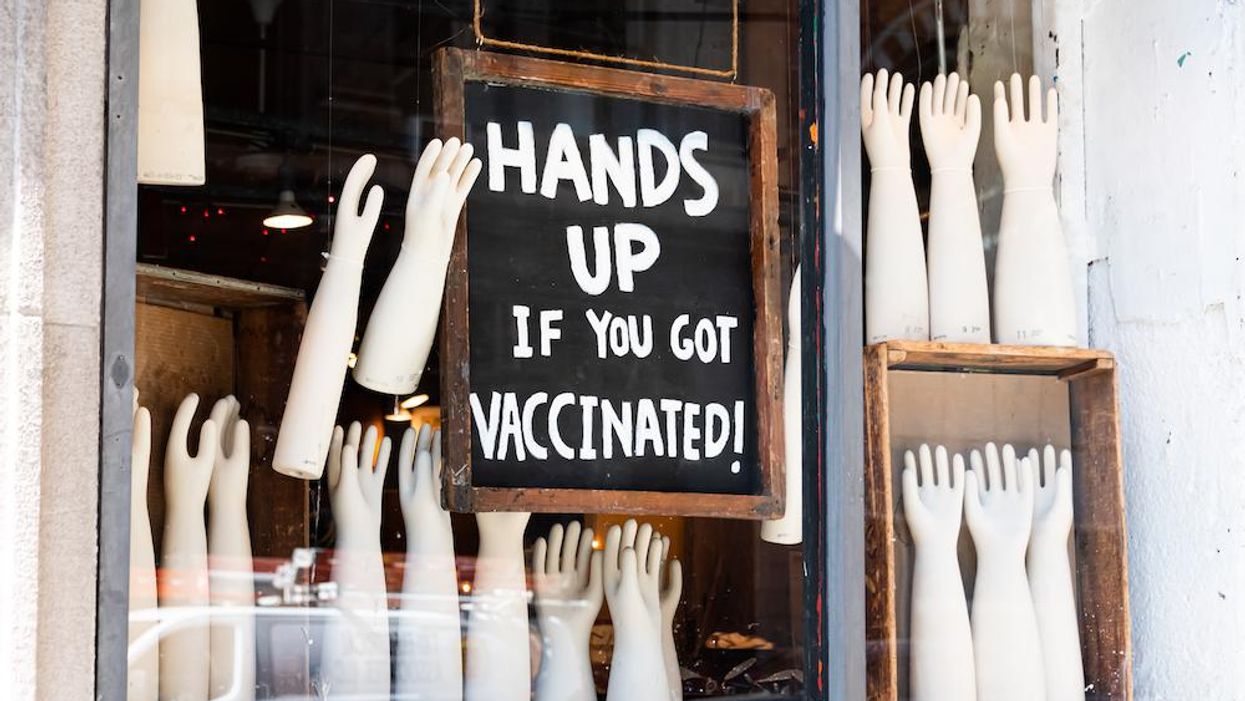
Photo by Noam Galai/Getty Images

Johns Hopkins School of Medicine and Bloomberg School of Public Health professor Dr. Marty Makary has shown he's not afraid to call out the nation's government health experts and media when he feels they are being overly cautious when it comes to the handling of COVID-19 — from the lifting of restrictions for the vaccinated to the forced isolation of Americans to the health bureaucracy's lack of common sense.
Just two months ago, Makary took the Centers for Disease Control and Prevention to task for its "absurdly restrictive" guidelines for vaccinated people. The doctor said that, though the CDC claims to be "following the science," the truth is the agency is "still paralyzed by fear."
Now, Dr. Makary has his sights set on the "fearmongering" coming from the media and so-called experts who claim the U.S. won't get to "herd immunity" in these days that are seeing the COVID-19 pandemic waning.
Makary aired his latest grievances with the alleged science followers in the pages of the New York Post on Wednesday with a new op-ed headlined, "Don't buy the fearmongering: The COVID-19 threat is waning."
"Americans are being fed a distorted perception of the risks by the media and some experts. They continue to fuel fear by repeating speculation that variants will evade vaccines," he began. "Don't buy it."
The doctor pointed out that about 57% of American adults are vaccinated and around half of the unvaccinated population currently have natural COVID-19 immunity from prior infection, which explains why cases in the U.S. "have been plummeting" — dropping 31% over the last 2 1/2 weeks.
Then he provided some context:
To put things in context, during the mildest flu season in the last eight years, there were 24 million cases, according to the Centers for Disease Control, and approximately 447,000 daily cases during its peak week. By comparison, we're averaging 49,641 daily COVID cases. That same mild flu season resulted in 280,000 hospitalizations. By comparison, current COVID hospitalizations as of May 1 are 34,905.
Of course, he warns that no one should confuse COVID-19 with the flu and that there is a definite risk among susceptible people, but for anyone who is immune and lives where the case-load is low, the threat of COVID-19 "is now defanged."
It's time, he said, to end harmful social isolation and "abandon the goal of absolute risk elimination at all cost."
He also noted that the case-fatality risk of COVID-19 has dropped significantly and that "vaccines will likely provide at least some immunity against variants."
Despite all the positive news, however, U.S. experts can't help themselves and continue to spread fear, he continued:
Despite this good news, Americans are being told variants and hesitancy will prevent “herd immunity." Yet noticeably absent from their calculations is the contribution of natural immunity from prior infection or exposure. Dr. Anthony Fauci and [CDC Director] Dr. Rochelle Walensky simply don't talk about the percent of Americans they estimate have natural immunity. That omission creates a perception that the race to 70 to 85 percent immunity is more desperate, resulting in a prolonged timeline, talk of vaccine mandates and an imperative that young kids get the shot.
According to Makary, researchers "have not seen significant re-infections at any concerning rate."
Which means, the doctor reasoned, "Any expert who talks about the path to herd immunity as a simple tally of vaccinations alone – which unfortunately is many – is ignoring data and real-world clinical experience."
The big picture, Makary said, is that the coronavirus is not going away and "herd immunity is not a finish line."
What the U.S. needs to decide, he continued, is "at what point is it no longer a major public-health threat?"
"For most states, it's now," he concluded, adding that it's time to "stop depriving people of their livelihoods and move toward normalcy."